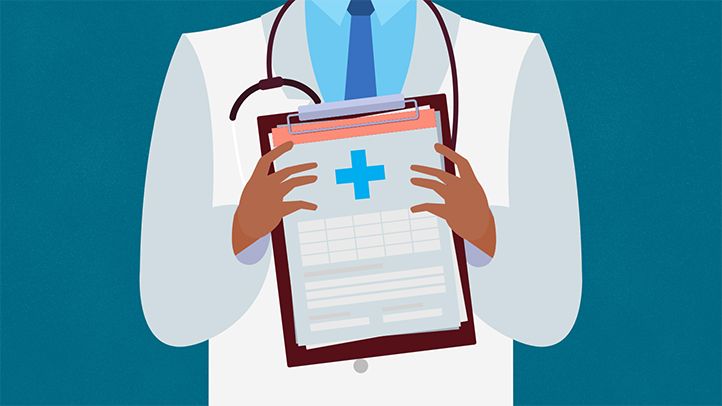Is Herpes Dangerous And a Serious Threat to Your Well-Being?
Sexual health is a fundamental aspect of overall well-being, and concerns about sexually transmitted diseases (STDs) often prompt individuals to seek information and guidance. Among the various STDs, herpes stands out as a prevalent condition that raises questions about its potential dangers. In this exploration, we aim to answer the question, “Is herpes dangerous and a serious threat to your well-being?” We will navigate through the medical landscape, discussing the implications of herpes and the importance of STD testing in Jacksonville, FL. As advocates for global health awareness, Hope Across The Globe takes pride in providing valuable insights into prevalent health concerns.
Understanding Herpes – Beyond the Stigma
Herpes is a viral infection caused by the herpes simplex virus (HSV), which has two main types: HSV-1 and HSV-2. While HSV-1 is commonly associated with oral herpes, HSV-2 is primarily responsible for genital herpes. The infection manifests as painful sores or blisters, often leading to concerns about its potential dangers.
One of the challenges surrounding herpes is the persistent stigma associated with the condition. It is essential to separate facts from misconceptions to provide a clearer understanding of the true impact of herpes on one’s health.
Read This: How Long Can You Have Herpes Without Knowing?
Is Herpes Dangerous to Your Physical Health?
Medical Implications of Herpes
From a medical standpoint, herpes is typically not categorized as life-threatening. However, it’s essential to acknowledge that the virus can have significant implications for specific demographics.
Herpes simplex virus (HSV) infections, both HSV-1 and HSV-2, are known for causing discomfort by developing painful sores or blisters. The severity of symptoms can vary from person to person. While many individuals may experience mild outbreaks, others may face more intense manifestations.
In specific populations, such as pregnant individuals or those with compromised immune systems, the medical implications of herpes take on added significance. Pregnant individuals with herpes may face potential complications, including the risk of transmitting the virus to the newborn during childbirth. It becomes crucial for healthcare providers to closely monitor and manage herpes infections in pregnant individuals to mitigate these risks.
Potential Complications
While the herpes virus may not be inherently dangerous, it can lead to complications beyond the primary symptoms. These complications, though rare, underscore the importance of vigilance and prompt medical intervention.
Herpes Encephalitis:
In severe cases, the herpes virus can affect the central nervous system, leading to a condition known as herpes encephalitis. This rare but serious complication can result in inflammation of the brain and may lead to neurological issues.
Increased Risk of Other Infections:
Individuals with genital herpes may have an increased risk of contracting and transmitting other sexually transmitted infections (STIs). The presence of open sores or lesions can create entry points for other pathogens, emphasizing the importance of safe sex practices.
Association with Cardiovascular Issues:
Some studies suggest a potential association between herpes infections and an increased risk of cardiovascular diseases. While more research is needed to establish a clear link, the implications of herpes on overall health warrant attention.
Herpes and Immunocompromised Individuals:
For individuals with compromised immune systems, herpes can pose a more significant threat. The virus may contribute to developing severe and prolonged infections, requiring careful management and medical oversight.
In light of these potential complications, individuals diagnosed with herpes should prioritize regular medical check-ups and adhere to recommended treatment plans. Vigilance and proactive healthcare measures are pivotal in mitigating the risk of complications and ensuring overall well-being.
Herpes and Mental Well-Being
The Emotional Impact
Beyond the physical aspects, the emotional toll of a herpes diagnosis should not be underestimated. The stigma surrounding herpes can lead to anxiety, depression, and challenges in interpersonal relationships.
Importance of Support and Counseling
Navigating the emotional complexities of living with herpes requires a support system. Professional counseling and open communication play crucial roles in helping individuals cope with the psychological impact of the diagnosis.
The Role of Hope Across The Globe
The Significance of STD Testing
Given the potential complications and emotional challenges associated with herpes, regular STD testing becomes a crucial component of proactive healthcare. In Jacksonville, FL, accessing comprehensive testing services is a bold step toward early detection and effective management.
As a dedicated provider of STD testing in Jacksonville, Hope Across The Globe is committed to offering accessible and confidential testing services. Our goal is to empower individuals to take control of their sexual health, facilitating early detection and intervention when needed.
Debunking Common Misconceptions
Myth: Herpes Always Causes Severe Symptoms: Contrary to popular belief, a significant number of individuals infected with herpes may not exhibit visible symptoms. Asymptomatic carriers can unknowingly transmit the virus, underscoring the importance of regular STD testing.
Myth: Herpes Is Always Transmitted Through Intercourse: While sexual contact is a standard mode of transmission, herpes can also be spread through oral-genital contact. Understanding the various modes of transmission is essential for effective prevention.
Read This: Can You Get an STI Without Having Sex?
Preventive Strategies and Safe Practices
Reducing Transmission Risks: Practicing safe sex, using condoms consistently, and being informed about one’s partner’s sexual health are integral components of reducing the risk of herpes transmission.
Incorporating Regular Testing into a Healthy Lifestyle: Regular STD testing in Jacksonville should be part of a proactive approach to sexual health. By integrating routine testing into one’s healthcare routine, individuals contribute to their overall well-being and that of their partners.
How Common Is Herpes and What Does It Mean for Your Health?
Herpes is one of the most common viral infections worldwide, affecting millions of people, yet it’s often misunderstood and stigmatized. The herpes simplex virus (HSV) causes the infection, and it exists in two primary forms: HSV-1, typically associated with oral herpes, and HSV-2, which is commonly linked to genital herpes. Understanding the prevalence of herpes and its implications for your health is crucial in managing this condition and alleviating any misconceptions surrounding it.
Prevalence of Herpes
Herpes is more common than most people realize. According to the World Health Organization (WHO), approximately 67% of the global population under the age of 50 is infected with HSV-1, the virus responsible for cold sores and oral herpes. In the United States alone, the Centers for Disease Control and Prevention (CDC) reports that around 1 in 6 adults aged 14 to 49 has genital herpes caused by HSV-2. The numbers for HSV-1 are also significant, with many people unknowingly carrying the virus, as oral herpes can be transmitted to the genital area through oral sex.
Though genital herpes is widespread, it’s important to note that many people who are infected with herpes do not show symptoms. This asymptomatic nature is one reason why herpes spreads so easily—individuals may not be aware they are carrying the virus and unknowingly transmit it to others. It’s estimated that about 90% of people with HSV-2 do not experience noticeable symptoms, which highlights the importance of getting tested even if you’re not exhibiting any signs of infection.
Implications for Health
While herpes is typically not life-threatening, it can have various health implications. The most immediate concern for individuals with herpes is the occurrence of painful outbreaks, which are marked by blisters and sores. For some, outbreaks are frequent, while others may only experience one or two over their lifetime. The severity and frequency of these outbreaks can vary greatly from person to person.
Herpes can also pose risks for certain populations, such as pregnant women. If a woman has genital herpes, there is a risk of transmitting the virus to her newborn during childbirth, which can result in serious complications for the baby. However, with proper medical care, this risk can be minimized.
Furthermore, herpes infections can lead to emotional and psychological impacts. The stigma surrounding herpes can cause feelings of shame or isolation for those diagnosed with the virus. Open conversations and education can help reduce this stigma and encourage people to seek the appropriate medical care and support.
Managing Herpes
While there’s no cure for herpes, it can be managed effectively with antiviral medications. These medications can help reduce the frequency and severity of outbreaks, making it possible to live a normal and healthy life with herpes. In addition to medication, lifestyle changes—such as managing stress, practicing safe sex, and maintaining a healthy immune system—can play a key role in managing the virus.
Ultimately, understanding how common herpes is and how it can impact your health can help reduce fear and stigma. With the right information and treatment, herpes is a manageable condition that many people live with successfully.
The Pain and Discomfort of Herpes: What You Need to Know
Herpes can be a painful and uncomfortable condition, especially during outbreaks. Whether caused by HSV-1 (oral herpes) or HSV-2 (genital herpes), the pain and discomfort associated with the virus can vary in intensity. Understanding what to expect during an outbreak and how to manage the pain is essential for improving your quality of life if you’re living with herpes.
Does Herpes Hurt?
Yes, herpes can cause pain, primarily during an outbreak when sores or blisters appear on the skin. For many individuals, the first outbreak tends to be the most severe, with symptoms that can last from 2 to 4 weeks. These symptoms often include itching, tingling, and burning sensations around the affected area, followed by the formation of painful sores. The pain is typically described as a sharp or stinging sensation, particularly when the sores are touched, and can make daily activities uncomfortable.
For people with genital herpes, the discomfort can be especially distressing, as the sores are located in sensitive areas. Oral herpes (cold sores) can also be painful, particularly when eating, drinking, or speaking. In addition to the physical pain, herpes outbreaks can cause emotional distress due to the stigma surrounding the condition.
Managing Pain and Discomfort
While herpes is a chronic condition with no cure, the pain and discomfort can be managed effectively. Antiviral medications are often prescribed to reduce the severity and duration of outbreaks, and they can help minimize pain. Over-the-counter pain relievers, such as ibuprofen or acetaminophen, can also help alleviate discomfort.
Maintaining good hygiene, using soothing creams, and wearing loose-fitting clothing can help reduce irritation. If the pain becomes severe or frequent, consult with a healthcare provider for further treatment options, such as stronger pain relief or suppressive therapy to reduce the frequency of outbreaks.
Exploring Treatment Options for HSV-2: What You Should Know
Herpes simplex virus type 2 (HSV-2) is a common cause of genital herpes, and while there’s no cure, effective treatments are available to help manage the virus. If you have been diagnosed with HSV-2, understanding your treatment options can help you reduce outbreaks, minimize transmission to others, and improve your overall quality of life.
Managing Outbreaks with Antiviral Medications
One of the most common treatments for HSV-2 is antiviral medication. Medications like acyclovir, valacyclovir, and famciclovir can reduce the severity and duration of outbreaks, providing relief from symptoms like pain, itching, and swelling. These antiviral drugs work by slowing down the replication of the virus, helping to control the infection and decrease the frequency of outbreaks.
For some individuals, antiviral medication is prescribed on a long-term basis, a strategy known as suppressive therapy. This approach can prevent or reduce the number of outbreaks over time, allowing you to lead a more comfortable and predictable life with HSV-2.
Reducing Transmission to Others
Reducing the risk of transmitting HSV-2 to others is a primary concern for many people with the virus. Antiviral medications not only help manage outbreaks but also play a significant role in lowering the risk of transmission. Suppressive therapy, in particular, has been shown to reduce the likelihood of transmitting the virus to sexual partners.
In addition to medication, using barrier methods such as condoms during sexual activity is important in further reducing the transmission risk. While condoms may not completely eliminate the chance of transmission, they can significantly lower the likelihood of spreading the virus.
Improving Quality of Life
Living with HSV-2 doesn’t mean you have to suffer from constant outbreaks or discomfort. By managing the condition with antiviral medications and other strategies, you can improve your quality of life. It’s important to focus on self-care, including stress management, healthy eating, and exercise, as these can help support your immune system and prevent flare-ups.
Psychological support is also crucial for those affected by HSV-2. The stigma surrounding genital herpes can lead to emotional distress, but seeking counseling or joining support groups can help individuals cope with the emotional challenges associated with the virus.
| Treatment Option | Description | Benefits |
|---|---|---|
| Over-the-Counter Pain Relievers | Pain relievers such as ibuprofen or acetaminophen can help alleviate discomfort during outbreaks. | Provides temporary relief from pain and discomfort during outbreaks. |
| Condom Use | Using condoms during sexual activity helps reduce the risk of transmitting HSV-2 to partners. | Lowers the likelihood of passing the virus to others during sexual contact. |
| Healthy Lifestyle | Maintaining a healthy diet, exercising, and managing stress can support the immune system and reduce outbreaks. | Helps maintain overall health, which can prevent flare-ups and support the immune system. |
FAQs
1. Can Herpes Kill You?
Herpes, particularly HSV-1 and HSV-2, is typically not life-threatening, but it can lead to serious complications in some cases. While the virus itself is rarely fatal, it can cause severe discomfort and, in rare cases, lead to complications like herpes encephalitis, which affects the brain. For people with weakened immune systems, herpes outbreaks can be more severe. It’s important to note that HSV-2, the primary cause of genital herpes, can cause painful outbreaks but does not usually result in death. With proper antiviral treatment, most individuals with herpes live healthy, fulfilling lives.
2. How Common Is Herpes?
Herpes is more common than many people realize. According to the Centers for Disease Control and Prevention (CDC), nearly 1 in 6 adults aged 14 to 49 in the United States has genital herpes caused by HSV-2. The World Health Organization reports that two-thirds of the global population under 50 is infected with HSV-1, the virus responsible for oral herpes. Despite these high numbers, many people with herpes do not experience symptoms and are unaware they have the virus. Herpes is spread through close contact, making it highly contagious, especially during an outbreak.
3. Does Herpes Hurt?
Yes, herpes can cause significant pain, particularly during outbreaks. When the virus is active, it leads to the formation of painful sores or blisters, often accompanied by itching, burning, or tingling sensations. For people with genital herpes caused by HSV-2, the discomfort is usually localized in the genital area, while those with oral herpes may experience pain around the mouth or lips. Although outbreaks can be painful, antiviral medications can reduce the severity and duration of the pain. In addition, over-the-counter pain relievers, ice packs, and soothing creams can help alleviate discomfort.
4. Is Herpes Dangerous?
While herpes is not generally considered life-threatening, it can still have serious consequences for certain individuals. Herpes can cause recurrent outbreaks, which can be physically painful and emotionally distressing. For pregnant women, genital herpes caused by HSV-2 can pose a risk to the baby, especially during delivery, leading to potential complications. HSV-2 can also increase the risk of contracting other sexually transmitted infections (STIs) due to the sores it causes. However, with proper treatment, including antiviral medication, herpes can be effectively managed, and most individuals can live a normal, healthy life.
5. Is HSV-2 Dangerous to Your Health?
HSV-2, which causes genital herpes, is generally not life-threatening, but it can lead to painful outbreaks and other health concerns. Although the virus is most dangerous during an active outbreak, it can still be transmitted to others even when no symptoms are present. For people with weakened immune systems, HSV-2 outbreaks can be more severe and harder to manage. Additionally, genital herpes can increase the risk of contracting other sexually transmitted infections, including HIV. However, with effective antiviral treatments, the severity and frequency of outbreaks can be reduced, and transmission risk can be minimized.
Conclusion
While herpes may pose challenges, it is not inherently dangerous to one’s life. The key lies in understanding the virus, debunking myths, and embracing proactive measures such as regular testing. Hope Across The Globe stands as a beacon of support, offering accessible and confidential STD testing services in Jacksonville, FL. Our commitment to global health awareness extends to empowering individuals to make informed decisions about their sexual health, fostering a world where STDs are destigmatized and well-being is prioritized. Remember, knowledge is a powerful tool – arm yourself with accurate information and take control of your sexual health journey.
Related Tag: Jacksonville STD Clinic






